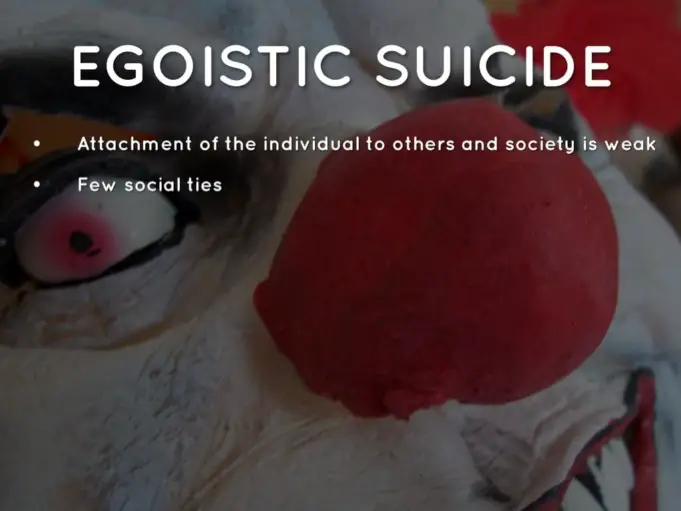Living every day of our lives as members of a society comes with various challenge, and as the magnitude of these challenges differs, so does the effect every challenge has on individual human beings.
It is our basic survival instincts that push us to engage in the various activities we find available do make ends meet, and also controls the actions we take when we sense danger or threats to both our physical and mental well-being.
For some people, living has become as easy as possible because of the growth and development of their society, the kind of support system obtainable in their society, and their standard of living.
Some other people have been able to get by every day by developing a coping mechanism to suit their daily activities and life experiences (this too is survival instinct) helping them to maintain both their sanity, physical well-being, and manage social interactions with other members of their society.
However, there is a larger group of people who find it difficult to deal with their daily struggles the same way the others do. Not because they do not have survival instincts, but because the society does not encourage the means or paths they have chosen as a medium to help them remaining functional members of the society.
These people sometimes try as much as they can to find better socially acceptable alternatives to get themselves out of their predicaments, but none seems to work for them like it does for other people, so they develop agoraphobia or simply seek to completely stop existing.
Another group of people are brainwashed by other members of the society to stop existing for a greater cause, with promises of rewards in the afterlife or a better life for their families when they are gone. In this article, we will discover what suicide is and just how prevalent it is in today’s society.
Almost every day on the news we hear about people jumping from bridges and tall buildings, poisoning themselves, or killing themselves and others in suicide bombing attacks worldwide.
The rate of suicide bombing attacks in 2016 alone was recorded to be 469 in 28 counties and was believed to be carried out by 800 perpetrators causing about 5650 deaths in the affected counties.
Thus, making the year 2016 the deadliest year for such attacks as at the time of this publication. That’s a huge record of human lives lost as a result of 800 people’s self-annihilation.
According to French sociologist David Èmile Durkheim who doubles as the founding father of modern sociology, Suicide is classified into four distinct types on the basis of various kinds of relationship between individuals and their society. The four types of suicide are;
- Egoistic suicide,
- Fatalistic suicide,
- Anomic suicide,
- Altruistic suicide.
For the purpose of this write-up, we will be focused mainly on the Egoistic type of suicide.
What is Egoistic Suicide?
It’s quite common to hear people talk about feeling out of place, lonely, odd, or generally feeling like they do not fit into the society because they see themselves as weirdos or societal misfits due to their inability to live up to societal expectations.
These set of people often exhibit suicidal behaviors because of the idea that suicide is the way out of their misery since they’ll cease to be a part of the society once they are dead. This kind of suicide is called egoistic Suicide.
Èmile Durkheim described egoistic suicide as the type of suicide that takes place when there is the presence of a low degree of social integration in a society. When there is a weak bond between individuals and their society, excessive egoism or individualism becomes inevitable. The society expects different things from people at different stages in life.
Take typical West African societies, for example, a married couple is expected to have children within the first few years of marriage. When this expectation of procreation is not met after a period of time, societal pressure on the couple increases and takes a negative toll on the wife and in rare cases both the husband and the wife.
This could result in a feeling of worthlessness and a feeling of being a failure for not achieving societal goals as at when expected. Suicidal thoughts often thrive in such an atmosphere, especially because in situations like this there is usually Little or no social support for individuals in this category.
Durkheim described the self of an individual who commits Egoistic suicide as one characterized by self-examination and deep meditation. This means the egoist is subjected to a life of depression, melancholy, and lack of purpose thus he needs adequate social and emotional support from other members of the society for him/her to find a reason to continue living.
With the emergence of social media came the evolution of cyberbullying and the display of seemingly perfect lives on social media. This coupled with the redefinition of beauty standards by the society (the major cause of body shaming) is increasing suicide ideation in teenagers and young adults at an alarming rate.
A large majority of young adults and teenager in 2018 have social media enabled devices and spend an excessive amount of time engaged in social media activities which exposes them to the lives of other people within their age range who seemingly are meeting social expectations.
This might cause them to have a sense of low self-esteem that’ll further lead to depression and eventually suicidal thoughts. Thus it is not far from the truth that there is a relationship between social media use and suicide.
Furthermore, recent studies have shown a correlation between an individual’s perspective on their physical appearance and suicide ideation.
Young people who do not look like the perfect picture of beauty as defined by the society, are often bullied (body shaming) both on social media and physically, causing them to feel uncomfortable in their bodies and take extremely dangerous measures to meet these beauty standards.
For those who are unable to achieve this take of reinventing themselves, if there is an absence of social support, depression begins to set in and the thought of suicide as an option almost becomes unavoidable.
Every suicide is premeditated, and all egoistic suicide attempts are preventable if only we pay attention to the struggles of other members of the society and support them as humanity intended.












